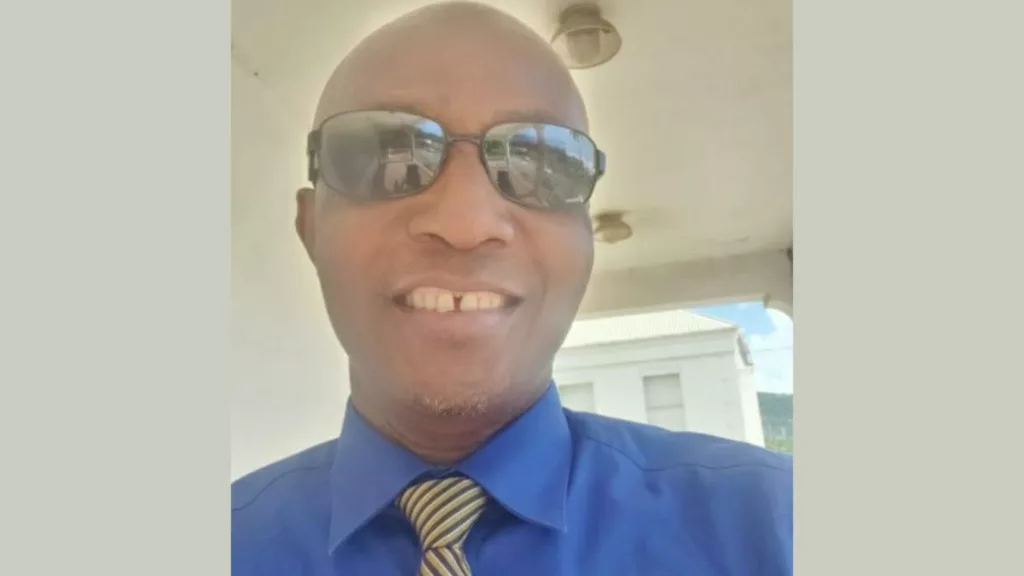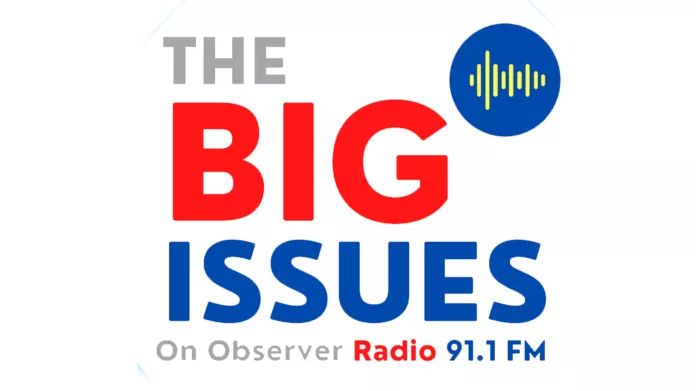‘If elected, we would become a republic and join the CCJ’ – Lionel Michael
By Barbara Arrindell
He is passionate about socioeconomic issues, especially public health and road traffic accidents. Youth and women’s empowerment are also critical issues for him.
Lionel Michael believes that everyone who can should work for what they want, while making room to help those in less fortunate situations. He believes in healthy debate where truth and facts are respected.
Barbara: If you were elected to lead the country as Prime Minister, what are some of the major changes that you would make in your first 30 days in office?
Lionel M: We would become a republic and join the CCJ, or at least I would push for both. I would find a way to provide more scholarships and training. I’d focus on strengthening the water sector and the road network. I would consider income/payroll tax and reduce some of our present taxes. I would focus on a sewage system for St John’s and give agriculture a bigger slice of the budget. I would also carry out public sector reform with a strong emphasis on HR.
Barbara: Tell us about Lionel the family man. What you do for fun?
Lionel: I have a lovely, supportive wife, Juliette Michael, and two daughters Junella and Arnelle. I love my immediate and extended family. I walk, enjoy the beach and have fun teasing people with my comments on social media.
Barbara: Why did you get into public health?

Lionel M: Public health brings those who work in that field into contact with real problems and their causes. It has challenged me to find solutions. Public health is very people-centred while recognising that the environment plays an essential role and can affect one’s total health.
Barbara: You mentioned women’s empowerment as something that is important to you. What exactly are you referring to and in what way do women need to be empowered?
Lionel M: I believe women should be provided with the opportunity to be educated and qualified and should be paid no less than a man who does the same job. Women should have equal access to available opportunities. All citizens need a level playing field for healthy competition. It is also important that we recognise and change the fact that there is too much abuse of vulnerable women.
Barbara: With your responses in mind, what is your position on the dress code requirements to enter certain government buildings; things like a woman needing to wear a shawl when visiting the library to further her education, or to the Transport Board if she happens to be wearing sleeveless attire?
Lionel M: Unacceptable. Any dress code should apply to everyone. Everyone should feel comfortable in their clothes, recognising that respect is important.
Barbara: What are the greatest challenges facing public health in Antigua and Barbuda right now?
Lionel M: Education. We are challenged to find the best methods to educate the population. The population seems uninterested in public health and environmental issues until they are personally and intimately affected. People need to understand that road traffic accidents are a public health issue and so is youth violence and domestic and gender violence. Poorly managed solid waste and sewage along with an inadequate supply of quality water are serious problems. Climate change and climate variability are things we all need to know about. Communicable (vector-borne, and foodborne illnesses) along with non-communicable diseases (cancer, hypertension, diabetes) must all be things we try to eradicate.
Barbara: You say that people are disinterested, but I think residents may suggest that those responsible are guilty of not responding to basic needs unless critical things happen.
Lionel M: They may be right in that view. However, the population seems unwilling to take measures that are shared with them, or if they take the measures, their actions are not sustained. The public needs to rally with departments to demand adequate resources so that departments can serve them to a higher standard.
Barbara: You are the former chief health inspector. Does that job involve inspecting public buildings on a scheduled basis? For example, the High Court building – who should have been monitoring the problems there?
Lionel M: Inspecting and assessing buildings for workplace problems is the responsibility of CBH and Labour. The main problem is that many buildings were not designed to be offices and in cases where they are designed to be offices, the designs were not done properly so we have problems with indoor air quality which impacts on worker health.
Barbara: What does the public health department need to be able to reach its objectives?
Lionel M: The support of the public, a change in their attitudes and practices, and knowledge of the issues. Citizens should be more available and provide sustainable support. Public health also needs an adequate budgetary allocation and timely provision of the funds. We need enforceable legislation and regulations.
Barbara: Finally, what advice do you have for the many permanent secretaries facing walkouts and sit-ins due to poor health-related working conditions in buildings, including most recently the High Court?
Lionel M: Support the workers, find alternative systems for work such as allowing those who can, to work from home and lobby the government to provide the resources to fix the problems.
Lionel Michael was a guest on Observer Radio’s Big Issues show on May 21 and will return this Sunday to discuss how air quality testing and mould assessment could improve conditions in the workplace.

